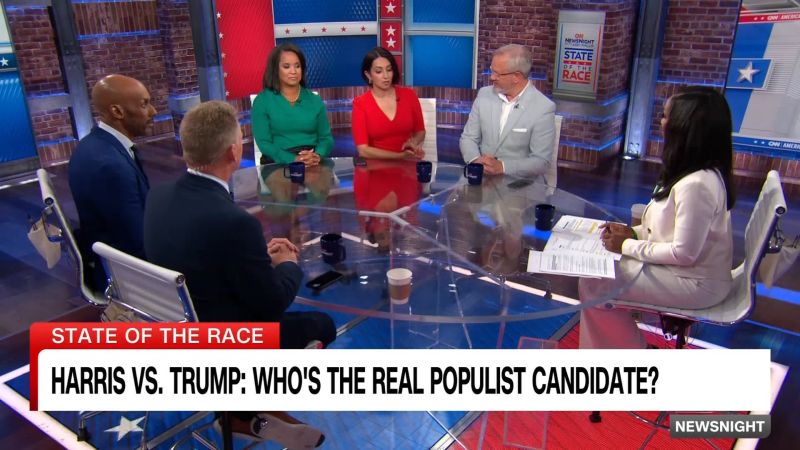Nayyera Haq, a former Obama White House official, expressed her thoughts on Trump’s populist message and its limitations. She suggested that Trump’s populism has hindered his ability to effectively govern and cater to the needs of the American people. In contrast, Kamala Harris, a prominent political figure, has embraced elements of populism in her economic agenda. This move may be considered as Harris taking a page out of Trump’s playbook, which raises the question of who the real populist candidate is in the current political landscape. Haq’s comments highlight the evolving nature of political messaging and strategies as candidates strive to connect with voters and address societal challenges.
The discussion about populism in politics is underscored by the contrasting approaches of Trump and Harris. While Trump has been known for his populist rhetoric and policies, Harris’s adoption of populism in her economic agenda suggests a shift in the political landscape. This shift may signify a greater acceptance of populism as an effective tool for addressing economic and social issues. However, Haq believes that Trump’s brand of populism has been limiting in its effectiveness, indicating that a more nuanced and inclusive form of populism may be needed to address the diverse needs of the American population.
The concept of populism is complex and multifaceted, with various interpretations and applications in politics. Trump’s populism, characterized by his appeals to working-class Americans and nationalist sentiments, has resonated with a significant portion of the population. However, the limitations of his approach, as highlighted by Haq, raise questions about the sustainability of such a narrow and exclusionary form of populism. Harris’s embrace of populism in her economic agenda may signal a more inclusive and progressive approach to addressing the needs of Americans from diverse backgrounds and communities.
The dynamics of populism in contemporary politics are evolving, as seen in the contrasting messaging and strategies of Trump and Harris. While Trump’s populist message has been influential in shaping his political career, Harris’s adoption of populism in her economic agenda signals a shift towards a more nuanced and inclusive form of populism. This shift reflects the changing political landscape and the increasing emphasis on addressing the diverse needs and challenges facing the American population. As the debate over populism continues to unfold, it is essential to consider the complexities and implications of this political ideology in shaping policies and governance.
Haq’s insights into the limitations of Trump’s populism and the potential of Harris’s embrace of populism highlight the nuances and challenges of navigating populism in contemporary politics. The contrasting approaches of these two prominent figures shed light on the evolving nature of political messaging and strategies in addressing societal issues. As the concept of populism continues to play a central role in shaping political discourse, it is crucial to critically evaluate its implications and potential for driving positive change. By examining the complexities of populism and its impact on governance, policymakers and citizens can gain a deeper understanding of the role of this political ideology in shaping the future of our society.


